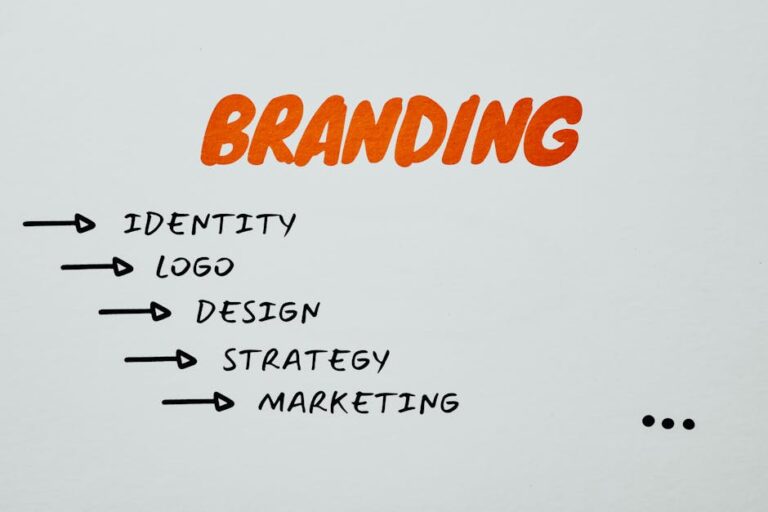How to Build Brand Authority and Position Yourself as an Industry Leader
In today’s competitive market, establishing brand authority is essential for long-term success. Consumers gravitate toward businesses they perceive as experts, making brand authority a key factor in trust, credibility, and influence. When a brand positions itself as an industry leader, it attracts more customers, earns greater media recognition, and enjoys stronger customer loyalty.
Brand authority is built through consistent thought leadership, valuable content, and a strong digital presence. It’s not just about having a great product or service; it’s about shaping conversations in your industry and providing knowledge that people seek. The most respected brands—such as Apple, Tesla, and HubSpot—did not rise to prominence solely because of their offerings but because they positioned themselves as pioneers and experts in their fields.
Consumers today do extensive research before making purchasing decisions. They rely on brands that provide reliable information, expert insights, and clear guidance. Businesses that focus on building their authority naturally attract trust, making it easier to convert potential customers into loyal advocates. By implementing strategic branding efforts, any business can rise above the competition and become the go-to authority in its niche.
Understanding Your Unique Value Proposition (UVP)
Before a brand can establish itself as an industry leader, it must first define its Unique Value Proposition (UVP). This is what sets a brand apart from competitors and clarifies why customers should choose it over others. Without a strong UVP, a brand may struggle to establish authority, as it will lack a clear and compelling reason for people to trust its expertise.
To define a powerful UVP, businesses must evaluate three key areas:
- Industry Gaps – What are your competitors failing to provide that your brand can deliver?
- Customer Needs – What challenges or pain points does your target audience face?
- Brand Strengths – What does your brand excel at that aligns with industry demands?
For example, a brand in the tech industry may stand out by offering cutting-edge innovation, while a wellness brand may establish authority through scientific research and expert-backed recommendations. A strong UVP ensures that a business is not just another player in the market but a leader that provides something unique and valuable.
Once the UVP is defined, it should be consistently reflected across all branding efforts, from website messaging and content marketing to social media and PR campaigns. A clear UVP not only differentiates a brand but also reinforces its credibility, making it easier to earn industry recognition and customer trust.
Establishing Thought Leadership Through Content
One of the most effective ways to build brand authority is by establishing thought leadership through content. Thought leadership positions a brand as a trusted source of insights, trends, and expertise, encouraging consumers to look to the brand for guidance rather than just products or services.
High-quality, educational content allows businesses to demonstrate their expertise while also providing genuine value to their audience. Some of the most effective forms of thought leadership content include:
- Blog Posts & Articles – Informative and well-researched pieces on industry trends, best practices, and expert advice.
- Whitepapers & Case Studies – In-depth reports that showcase the brand’s knowledge and success stories.
- Webinars & Podcasts – Live discussions and interviews that engage audiences and reinforce credibility.
For example, brands like HubSpot and Neil Patel have built their authority by consistently publishing insightful content that educates their audience. Their blogs, free resources, and detailed guides make them go-to sources for marketing and business knowledge.
Additionally, content should be optimized for SEO to increase visibility and drive traffic. Brands that dominate search engine results for industry-related queries establish automatic credibility as leading voices in their fields. By leveraging brand development services, businesses can create a content strategy that strengthens their authority while driving consistent engagement.
By continuously sharing valuable insights, research-backed advice, and practical solutions, brands can cement their authority in their industry. Customers don’t just buy from businesses; they follow, trust, and advocate for brands that consistently educate and inspire them.
Leveraging Social Proof and Customer Testimonials
One of the most powerful ways to build brand authority is through social proof—the validation that comes from real people supporting and endorsing your brand. When potential customers see others speaking positively about your product, service, or expertise, it creates trust and reduces uncertainty. Social proof works because people tend to follow the behavior of others, especially when making decisions about something unfamiliar or high-stakes.
Customer testimonials are a cornerstone of social proof. Whether it’s a few lines of praise or an in-depth case study, testimonials offer credible, relatable evidence that your brand delivers results. Featuring authentic testimonials across your website, landing pages, and social media platforms reassures new prospects that your brand has a track record of success. To increase impact, include the customer’s full name, photo, or business title—this adds an extra layer of credibility and relatability.
Beyond testimonials, case studies are particularly effective for service-based businesses or those in B2B industries. A detailed breakdown of how your brand solved a client’s problem demonstrates both your process and your expertise. It shows potential customers not just that you’re capable, but how you achieve results.
Another form of social proof comes from online reviews, particularly on third-party platforms like Google, Yelp, or industry-specific directories. Actively collecting and managing reviews can significantly impact your perceived authority. Responding to both positive and negative reviews shows transparency and a willingness to engage with your audience—two key traits of trusted industry leaders.
Influencer and expert endorsements also carry weight. When a respected figure in your niche publicly supports your brand, it lends credibility and opens your brand up to their audience. Partnering with influencers or collaborating with thought leaders for co-branded content, webinars, or interviews can further elevate your status.
By consistently gathering and showcasing social proof, you allow your satisfied customers to become part of your marketing strategy. Their voices validate your expertise and create a ripple effect of trust, enhancing your reputation as an industry authority.
Building a Strong Digital Presence
Establishing brand authority in today’s market requires more than offline relationships or word-of-mouth—it demands a robust digital presence that aligns with your expertise and values. The first and most essential platform for building this presence is your website, which serves as the hub of your brand’s identity.
A strong website should clearly communicate who you are, what you offer, and why you’re the best at it. It should be well-designed, fast, mobile-friendly, and optimized for search engines. SEO plays a huge role in building digital authority—ranking high for key industry terms increases visibility and signals to users (and search engines) that your brand is a trusted source.
Your website should also include an active blog or resources section that demonstrates your thought leadership. Publishing regular, high-quality content that addresses audience pain points and emerging trends keeps your site fresh and valuable, while also improving SEO.
Equally important is a consistent and engaging social media strategy. Platforms like LinkedIn, Instagram, and Twitter allow you to showcase expertise, engage directly with your audience, and join industry conversations in real time. Being visible on social media is not just about promotion—it’s about participation. Industry leaders use these platforms to listen, respond, and lead.
A strong digital presence also includes email marketing, where regular newsletters or updates can provide additional insights, company news, and curated content. When used strategically, email nurtures ongoing relationships and reinforces your authority through consistent value delivery.
By showing up consistently across digital channels with thoughtful, relevant, and expert content, your brand becomes a familiar and trusted name in your niche.
Networking and Collaborating with Industry Leaders
Authority doesn’t happen in a vacuum. One of the fastest ways to elevate your brand is by collaborating with existing leaders in your field. This kind of association builds credibility through proximity and demonstrates that your brand is operating at a high level.
Start by identifying industry experts, influencers, or complementary businesses with audiences you’d like to reach. Look for opportunities to co-create content, such as joint webinars, podcast interviews, blog posts, or live events. These partnerships introduce your brand to new audiences while also signaling that you are a peer to respected figures in your space.
Attending or speaking at industry conferences, panels, and virtual summits is another valuable opportunity. These events help you stay ahead of trends while also providing visibility as a knowledgeable participant. Even attending as an engaged audience member helps you network and learn from others in your space.
You can also build authority by joining professional associations, masterminds, or niche communities where decision-makers and influencers are active. These connections often lead to referrals, strategic partnerships, or speaking opportunities that further reinforce your authority.
Being active in your professional community—whether through collaborations, thought exchanges, or peer learning—shows that your brand is not only knowledgeable but also engaged and respected. These relationships compound your visibility and solidify your place as a true industry leader.
Creating and Sharing Proprietary Research and Data
One of the most effective ways to build brand authority is by becoming a source of original insights. When a business produces proprietary research, it positions itself not just as a participant in the industry—but as a thought leader actively shaping it.
Sharing original studies, surveys, trend reports, or industry benchmarks helps your brand stand out from competitors who simply repackage existing information. It demonstrates that your company invests time and resources into understanding the market, customers, and emerging trends. More importantly, it shows that you have something new and valuable to offer.
Proprietary content also tends to earn backlinks from other websites, which boosts your SEO and visibility. When media outlets, industry blogs, or other businesses cite your data, your brand name is associated with credibility and expertise. Over time, this creates a flywheel of trust—audiences begin to look to your brand as the go-to source for reliable, data-backed insights.
The key is to make your research both accessible and actionable. Publish it in multiple formats—blog posts, downloadable reports, infographics, videos—and promote it across channels like LinkedIn, email newsletters, and partnerships with media outlets.
For example, if you’re a marketing agency, conducting an annual report on consumer behavior trends or social media algorithm changes can establish your team as experts. Similarly, an eCommerce platform might publish data on conversion rates by industry or device, helping your audience make smarter business decisions.
Proprietary research is not just about authority—it’s about delivering value that no one else can offer. When done consistently, it sets your brand apart and keeps people coming back for insights they can’t get anywhere else.
Speaking Engagements and Public Relations
Another high-impact strategy to establish brand authority is getting visible in front of the right audiences—and speaking engagements and public relations (PR) are two key ways to do it. Being invited to speak at industry events, webinars, or podcasts not only amplifies your reach but also positions you as a recognized expert in your field.
Speaking on a panel, delivering a keynote, or even hosting your own educational webinar allows you to demonstrate your expertise live, build personal rapport with your audience, and share your message in a credible and influential format. The more often people hear your voice or see your name associated with thought leadership opportunities, the more they begin to associate your brand with authority.
You don’t need to wait to be invited—pitching yourself to podcast hosts, conference organizers, or niche publications is a proactive way to get your foot in the door. Offer to speak on topics you’re passionate about that are timely, relevant, and helpful to your audience.
At the same time, an effective PR strategy helps your brand get media coverage that boosts your perceived authority. Press mentions, interviews, guest articles, or quotes in expert roundups reinforce the idea that your insights are in demand. A single feature in a respected industry outlet can elevate your credibility significantly.
Make sure to repurpose PR wins across your platforms. Share media features on your website, highlight speaking events on social media, and include press logos in your pitch decks or email signatures. This not only extends the reach of each opportunity but also builds your social proof—key for establishing authority.
Consistently Delivering Value to Your Audience
At the core of every authoritative brand is a commitment to consistently providing value—without always asking for something in return. Authority is earned by helping your audience solve problems, make decisions, and navigate challenges, over and over again.
This can take many forms:
- Sharing actionable tips and insights in weekly emails
- Creating free tools or templates
- Hosting live Q&As or educational sessions
- Writing blog posts that break down complex topics in simple language
- Responding to questions in online communities or social media threads
What matters is consistency. Brands that show up regularly, offer high-quality content, and genuinely care about their audience’s success become trusted resources. Over time, this creates emotional loyalty, where customers not only trust your expertise but also feel connected to your mission and values.
Another important element of delivering value is listening. Pay attention to what your audience asks, what they struggle with, and what they care about. Use this feedback to shape future content, product updates, or support resources. A brand that listens is a brand that leads.
When customers feel like your business is invested in their success—even before they buy—they’re more likely to return, refer others, and view you as the expert in your space.
Conclusion: Sustaining Brand Authority Over Time
Building brand authority is not a one-time campaign—it’s a long-term investment in credibility, trust, and relevance. It takes time, consistency, and a clear understanding of your audience and industry to establish—and even more discipline to maintain.
Once your brand is seen as an industry leader, the challenge becomes staying there. That means continuously evolving with trends, adapting your messaging, and continuing to educate, inspire, and connect with your audience. Brands that stop innovating or sharing lose their edge—authority is earned, but it must also be renewed.
Keep refining your unique value proposition. Continue creating original content and research. Stay active in your community and seek out speaking opportunities and partnerships that expand your reach. Above all, stay committed to helping your audience win.
The businesses that lead their industries are the ones that create lasting value, build real trust, and consistently show up with expertise. When you combine these elements—plus authenticity, strategic branding, and customer-first thinking—you don’t just build authority. You become the brand everyone else looks to.

















